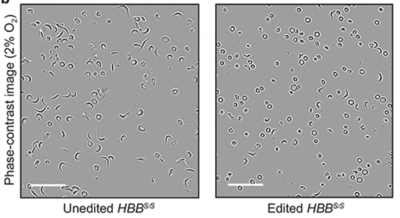FOR IMMEDIATE RELEASE
Newswise — Harnessing the power of mRNA, a naturally occurring molecule that tells the body how to make a protein, experts in the field of basic science (also known as fundamental research) at Johns Hopkins Medicine are working to find new avenues for promising mRNA-based therapies to treat conditions including cancer, autoimmune and genetic diseases.
As you consider stories following recent federal government cuts to mRNA vaccine research, contact Alexandria Carolan ([email protected]) or Vanessa Wasta ([email protected]) to learn more about timely research developments at Johns Hopkins.
Making mRNA vaccines more efficient
- Rachel Green, Ph.D., Bloomberg Distinguished Professor of Molecular Biology and Genetics; Daniel Nathans Director of the Department of Molecular Biology and Genetics and Professor in Molecular Biology and Genetics; Howard Hughes Medical Institute investigator
Green studies how ribosomes, tiny macromolecular machines, help translate mRNA into an encoded protein. Essentially, mRNA is like the cell’s recipe for making protein, and it gets all of its ingredients from the cell itself. Ribosomes slide down mRNA, pull protein ingredients from the cell and create a long string of amino acids that eventually forms a protein.
When mRNA is damaged, these ribosomes can malfunction and stall, leading to ribosome collisions that make mRNA vaccine delivery more challenging. Understanding cellular responses resulting from these collisions helps Green and her team of scientists find the best ways to design mRNAs for vaccines.
Targeting genetic disease
Newby studies how to use genome editors to treat genetic diseases that cause problems with the blood, heart, lungs, muscles and retinas. Genome editors can be targeted to directly correct misspellings in the DNA code that lead to progressive damage and death. Using mRNA to deliver gene editors, physicians have already treated genetic diseases in patients. Cells use ribosomes to produce the editor proteins out of the mRNAs that physicians deliver to them.
Newby’s work has shown how mRNA delivery of editors to blood stem cells can serve as a basis for treating sickle cell disease. In addition to using mRNAs as a therapy, Newby says mRNAs are a critical research tool that helps scientists quickly test and optimize gene editing strategies in cell models. Continued development of these approaches could enable new therapies for hundreds of genetic diseases.
- Jeff Coller, Ph.D., Bloomberg Distinguished Professor of RNA Biology and Therapeutics at The Johns Hopkins University and Johns Hopkins Medicine
By targeting specific areas of mRNA to enhance their expression within the body, Coller and scientists in his lab have found a way to treat a variety of rare genetic diseases marked by too-low levels of cellular proteins. Coller’s work has shown that mRNA technology can increase the amount of a certain protein in cells to levels that can repair poor protein production.
This work could pave the way for therapies for diseases in which one copy of a person’s genes is missing or altered, including forms of cancer and immune system and neurodegenerative disorders.
The potential to treat cancer and autoimmune diseases with mRNA
Green is studying how to develop mRNA-based vaccine technology for noninfectious diseases, including cancer.
To do this, Green and scientists in his lab have developed a nanoparticle — an extremely tiny biodegradable container — that has the potential to improve the delivery of mRNA.
Results of tests in mice show that the degradable, polymer-based nanoparticle carrying an mRNA-based vaccine, when injected into the bloodstream of mice, was able to travel to the spleen and activate certain cancer-fighting immune cells in a targeted way.
Scientists may be able to improve cancer treatment-focused vaccines by enhancing their ability to reach dendritic cells — immune cells that teach the rest of the immune system, in particular T-cells, to seek and destroy cancer cells.
The Green Lab is also using related mRNA nanotechnology to investigate treatments for autoimmune diseases including type 1 diabetes and multiple sclerosis.
